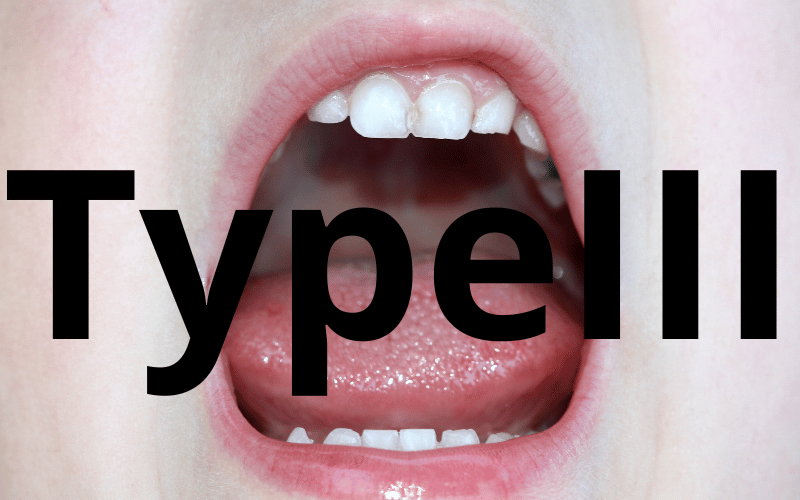Type III: Posterior Tongue Tie

The Posterior Tongue Tie, classified as Type III, is a more elusive kind of tongue tie. Unlike its anterior counterpart, which is evident right at the tongue’s tip, the posterior tie is situated deeper, anchoring the base of the tongue to the mouth’s floor. This deeper placement often masks its existence, making it a silent hindrance that’s hard to diagnose based solely on a visual examination.
The challenges posed by a posterior tongue tie are multifaceted. While those with this tie may exhibit reasonably good tongue mobility during basic movements, the devil is in the details. When we delve into the intricacies of speech, particularly the pronunciation of certain complex sounds, the restrictions become manifest. Common sounds, taken for granted, can become Herculean tasks. The joy of singing a song, humming a tune, or even clearly expressing oneself can be tainted by this hidden tie.
But the impact of this tie doesn’t end with speech. The broader health implications can be quite significant. For instance, improper swallowing techniques may be developed as a compensatory mechanism. This, in turn, can lead to digestive issues or even posture-related problems. The posterior tongue tie stands as a stark reminder of the body’s intricate interconnectivity, where a minor oral anomaly can cascade into overarching health concerns.
Addressing a posterior tongue tie involves a deeper understanding of its nature and a multi-faceted approach to treatment. While the surgical procedure to release the tie shares similarities with other types, the post-operative care is intensive. Given its profound impact on both speech and overall health, a holistic treatment plan involving speech therapists, nutritionists, and even physiotherapists might be warranted. This multi-pronged approach ensures that while the physical tie is severed, the residual functional challenges are adequately addressed too. (3)